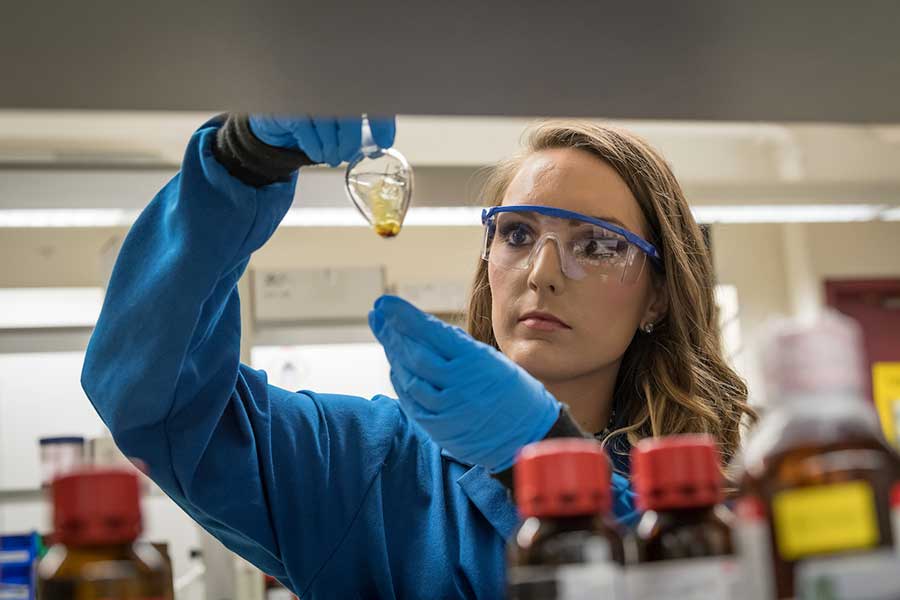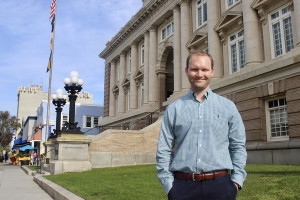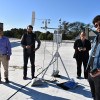Meet the Malvern Scientist Making a Global Impact

Photo credit: Courtesy of Villanova University
When you think of science, your brain probably conjures up complex experiments or complicated formulas and theories. But for Villanova University Chemistry Master’s grad Stephanie Schallenhammer, science is more than that – it’s an art form. She pairs her love of science with her creativity to excel in the pharmaceutical science sphere.
As an analytical project coordinator scientist at Eurofins, she works to maintain quality control of major market drugs across the world. She and her team of scientists continue to innovate and develop new drugs to ensure a healthier tomorrow.
We sat down with her to learn more about the impact of her education at Villanova, how she found her field, and the future of pharmaceuticals near and far.
What does an analytical project coordinator scientist at Eurofins do?
Currently, I work at one of Eurofins’ client sites, at Janssen Pharmaceuticals in Malvern. As a scientist in their Material Science department, my lab work entails characterizing and analyzing components, such as amino acids, in samples that other labs submit or raw materials from outside vendors that we could possibly use for pharmaceutical development and formulation.
How does your role impact the community?
Each material, whether it’s a sample, raw material or chemical that passes through my hands is part of some common drug that you and I have both taken at some point in our lives. We’re not just impacting the lives of people living in the Philadelphia area, we are impacting the lives of people around the entire globe through our scientific innovations and drug developments. It all starts with us.
Have you always been passionate about science?
Science has always interested me, but I am also a concert pianist (I first started playing 20 years ago). I’ve learned to express myself differently and to think creatively, which I think is one of the reasons why I’m passionate about science—it allows me to be creative!
You received your Master of Science in Chemistry at Villanova in 2018—how did you decide on your program?
I discovered that Villanova offered a two-year full-time program that would allow me to do my own research and be a teaching assistant in the laboratories, which I thought was pretty awesome. Most important, though, was connecting with Dr. Kevin Minbiole during my visit. Dr. Minbiole became my research advisor, and I realized that he cares not only about your learning experiences but also your well-being. I felt as though I would not just be a part of a research group, a lab group or a graduate program, but that I was becoming a part of something else too, a family.
Do you use any of the skills you acquired at Villanova on a daily basis?
Villanova entrusted me with a scientific toolbox and skillset that I am constantly building upon in my current role. I am always refining and enhancing the laboratory techniques and skills I learned there and striving to better myself and my work.
Any advice for students interested in pursuing a career in science?
Don’t let the big words people try and use all the time be a deterrent! This is one of the aspects of science that scares people away. But actually, when broken down and communicated in a way everyone can comprehend and appreciate, science is quite simple. To me, science is an art. It’s about expression and experience. How does the world express itself and how do we engage with its chemical advances and beautiful inconsistencies? That’s the thrill of science.
Learn more about Villanova’s Master of Science in Chemistry program.
This is a paid partnership between Villanova University College of Liberal Arts and Sciences and Philadelphia Magazine


